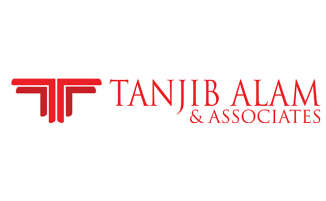1. What are the key tax laws and regulations in Bangladesh that individuals and businesses should be aware of?
Like any other advanced economy, tax legislation in Bangladesh broadly consist of three legislations, namely (a) the Customs Act 1969, (b) Supplementary Duty and Value Added Tax Act 2012 (SD&VAT Act) and (c) Income Tax Act 2023. A foreign investor which is a legal entity and intends to do business in Bangladesh should be aware of the applicable rate of tax that will be imposed for importing machineries and raw materials. The SD&VAT Act deals with indirect tax that is imposed on the goods and services sold or rendered by an entity in the local market. As far as income tax is concerned, a foreign investor should be aware of the corporate tax rate and various obligations for withholding taxes and the compliance regime that must be followed to take benefit of allowable expenditure. The National Board of Revenue (NBR) is the relevant authority responsible for managing the aforementioned three legislations. They have been vested with various extensive powers to issue statutory regulatory orders (SRO) from time to time. At times, provision of SROs can make a lot of difference between tax exemption and a higher level of tax obligation.
An individual should primarily be aware of the provisions of the Income Tax Act and the obligations involving submission of tax returns for any failure to submit the return will have penal consequences.
2. Can you explain the income tax rates and brackets for individuals and businesses
in Bangladesh?
Tax is not payable by tax residents on income below Taka 350,000 for men and Taka 400,000 for women and senior citizens aged 65 years or above. The following tax rates are applicable to resident individuals, Hindu undivided families, partnership firms and non-resident Bangladeshi:
| Total income | Tax rate |
|---|---|
| First Taka 350,000 | Nil |
| Next Taka 100,000 | 5% |
| Next Taka 300,000 | 10% |
| Next Taka 400,000 | 15% |
| Next Taka 500,000 | 20% |
| Balance amount | 25% |
With regards to the businesses in Bangladesh, the applicable tax rates depend on the sector of business and whether the company is public or private. For instance, publicly traded companies are subject to a tax rate of 20% to 22.5% depending on their listing percentage. Similarly, mobile phone operators are subject to 40%-45% tax, non-listed companies (except certain business sectors such as tobacco, jute, textile, etc) are subject to 27.5% tax and publicly listed banks are subject to 37% tax.
3. What are the common deductions and exemptions available to individuals and businesses under Bangladeshi tax laws?
The common deductions and exemption available to businesses while computing income in Bangladesh include rent, insurance premiums, interest payments, maintenance costs, machinery costs, utility bills, advertisement costs, legal fees, and any other expenses that are related to the business or profession. Generally, any expenditure that is incurred for the purpose of earning the income (not being capital expenditure or personal expenditure) shall be allowed to be deducted. The new Income Tax Act 2023 allows deduction of medical expenses and daily allowances to salaried persons while computing individual income.
4. How can I ensure compliance with tax regulations while minimising my tax liabilities?
The primary strategy for an individual or business in Bangladesh to optimise tax outcomes is to be aware of the tax law provisions. One of the ways to optimise tax outcomes for businesses is corporate restructuring which may require consultation from specialised, skilled and experienced legal consultants. As such, it would be prudent for individuals and businesses in the long run to retain skilled and experienced tax practitioners.
5. What are the tax obligations for businesses operating in multiple locations or engaging in international transactions?
In case a business is operating in multiple locations of the globe, of which Bangladesh is one, its tax obligation in Bangladesh will depend on several factors specific to the entity and the corresponding provisions of the double taxation avoidance agreement between Bangladesh and the jurisdiction in which the business primarily resides. There are agreements on avoidance of double taxation between Bangladesh and 40 countries of the world. In general, a foreign tax credit is available to a Bangladesh resident in respect of any taxes paid in a foreign jurisdiction on the same income being taxed in Bangladesh. The allowance credit is the lower of the foreign tax paid or the Bangladesh tax otherwise payable.
6. What are the potential tax benefits and incentives available for foreign investors in Bangladesh?
As part of the continuing endeavour of the governments to encourage foreign investment in Bangladesh, there are certain business sectors that enjoy tax benefits and incentives. The sectors include power plants, pharmaceuticals, biotech and chemical sector, public-private partnership projects, EPZ, EZ and hi-tech park investors and developers, exploration and extraction of mineral operations, subcontractors in petroleum operations, and industrial enterprises and physical infrastructures. It is noteworthy that a significant percentage of foreign investment in Bangladesh is made in these sectors.
7. How can I resolve tax disputes or handle tax audits with the tax authorities in Bangladesh?
The most efficacious avenue to avail a remedy against any order of an income tax authority subordinate to the Appellate Joint commissioner or the Commissioner of Taxes (Appeal) is to prefer appeals to the Appellate Joint commissioner or the Commissioner of Taxes (Appeal); appeal to the Appellate Tribunal against an order of the Appellate Joint Commissioner or the Commissioner (Appeals) and Reference application to the High Court against any order of the Appellate Tribunal.
8. Can you provide guidance on transfer pricing regulations and their implications for multinational corporations operating in Bangladesh?
The Income Tax Act 2023 provides for extensive provisions regarding responsibility and determination of the ‘arm’s length price’ of such transactions. If such a transaction is not found to be at arm’s-length price, the income tax authority may determine the pricing through the transfer pricing officer in one of the ways prescribed in the Act.
9. What are the recent changes or updates in Bangladeshi tax laws that individuals and businesses should be aware of?
The most significant update in Bangladeshi tax law is the introduction of the Income Tax Act 2023 by repealing the
three-decades old Income Tax Ordinance 1984. In addition, the National Board of Revenue formulates and publishes various SROs from time to time, which may be of relevance to businesses of specific sectors.
10. Are there any specific tax planning strategies or recommendations you can offer to optimise tax outcomes for individuals or businesses in Bangladesh?
One of the most effective methods of tax structuring by foreign investors in Bangladesh is to invest through an entity which is incorporated in a tax heaven with whom Bangladesh has a double taxation treaty. This will almost certainly reduce the tax exposure against payment of a dividend by half. Currently, the dividend tax is 20%, if the foreign shareholder is incorporated in a country with which there is a double taxation treaty, then the applicable rate is 10%.
For more information contact:

Mr Kazi Ershadul Alam
Partner
E: ershadul.alam@tanjibalam.com

Mr Asif Hasan
Associate
E: asif.hasan@tanjibalam.com







